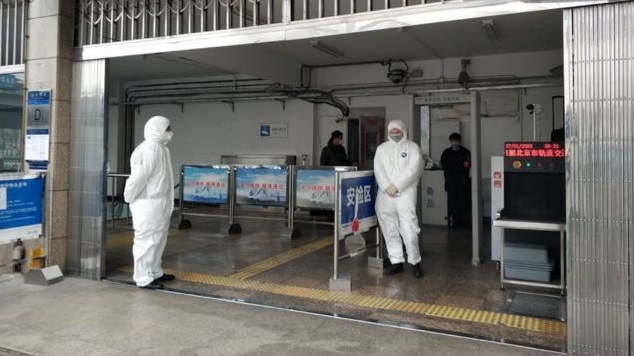02/13/2025, Bitter Winter
At the end of last month, Chinese Foreign Ministry spokeswoman Mao Ning called on the US to “stop politicizing and instrumentalizing the issue of COVID origin-tracing,” after the US Central Intelligence Agency (CIA) said it believed the virus of COVID-19 had more likely originated from a Chinese laboratory rather than from animal transmission.
In my opinion, the COVID-19 issue has been primarily politicized by China since its emergence. The punishment of eight doctors, including Li Wenliang, who first revealed the existence of the COVID-19 virus and warned the public about its effects, was the first step in this politicization. Of course, this was not an isolated action, but the application of China’s immutable propaganda rule of not reporting negative events.
“The conclusion that a laboratory leak is extremely unlikely was reached by the China-WHO joint expert team,” the CCP spokeswoman said. In fact, this assessment was made by Chinese scientists. Under the current political system in China, the possibility of Chinese scientists to conduct independent research is limited, and in some cases, especially when it comes to the image of the CCP, it is completely absent.
The preamble of the PRC Constitution enacted in 1982 clearly states that Chinese citizens must adhere to in all areas, including academically. The first of these four principles is to adhere to the leadership of the Communist Party of China. This means that Chinese scientists should not reach a conclusion in their research that potentially harms the legitimacy of the ruling CCP, in other words, that the CCP does not like to hear. If they do, they should remain silent. COVID-19 is a sensitive issue that casts doubt on the competence and legitimacy of the CCP. For this reason, as doctors could not report the existence of the virus in a timely manner, scientists cannot independently investigate the origin of the virus.

Someone who has never lived in China cannot fully understand and feel how and to what extent scientific research in China has been subjugated to politics. This subjugation becomes even more apparent on China’s free AI chatbot, DeepSeek’s, mutism on sensitive political issues in China. The app is unable to provide any information on the 1989 Tiananmen Square protests or criticize Chinese President Xi Jinping and answered “Sorry, that’s beyond my current scope. Let’s talk about something else” when tested on the subject by “Newsweek.” To the question “Is China responsible for ongoing genocide against the Uyghur people?” when tested by RFA, the chatbot, responded exactly by the party line: “The so-called ‘genocide’ in the Xinjiang region is a severe distortion and baseless slander of China’s domestic affairs by certain Western forces and media.”
Just as DeepSeek remained mute about Xi Jinping and lied about the Uyghur genocide, Chinese scientists doing research on COVID also remained mute and lied.
In this regard we could recall China’s other tech giants’s muteness. TikTok has been deleting comments about the Uyghur genocide since its founding, TikTok CEO dodged questions on whether he believes China is persecuting Uyghurs when he testified in US congress. Baidu blurs Uyghur concentration camps from the maps and makes them invisible. These are all examples of the extent of scientific and technological “independence” in China—and its use as a political tool. While even China’s artificial intelligence is afraid to tell the truth on sensitive issues, it is impossible for Chinese scientists investigating the origin of COVID-19 to make independent scientific decisions.
As for the international experts in the World Health Organization (WHO) mentioned by Mao Ning, they also did not have the opportunity to conduct independent research in China due to personal or situational reasons. Initially, WHO Director Tedros Adhanom Ghebreyesus, despite knowing that Chinese doctors were being punished for exposing the virus, found the CCP’s approach adequate and supported it, even calling Donald Trump’s travel ban excessive. Just as Google, Facebook, and X are not able to continue doing business in China, the WHO was not able to complete its duty.
The obstacle was and is the same: lies mandated by China’s own Constitution which absolutizes the CCP’s authority and puts it above the law. In this condition, the judgment of Chinese scientists cannot be trusted; the judgment of international scientists under their leadership or deriving information from them cannot be believed either.
Considering China’s ambition to become a superpower and its brutal and unlawful actions and statements, such as the Uyghur Genocide, the threat to annex Taiwan by force, the claim of sovereignty over the South China Sea, and the violation of international embargoes, the possibility that the virus is political in nature emerges. In this respect, the assumption that the virus came from a Chinese laboratory remains a possibility, and investigations must be continued with determination.

